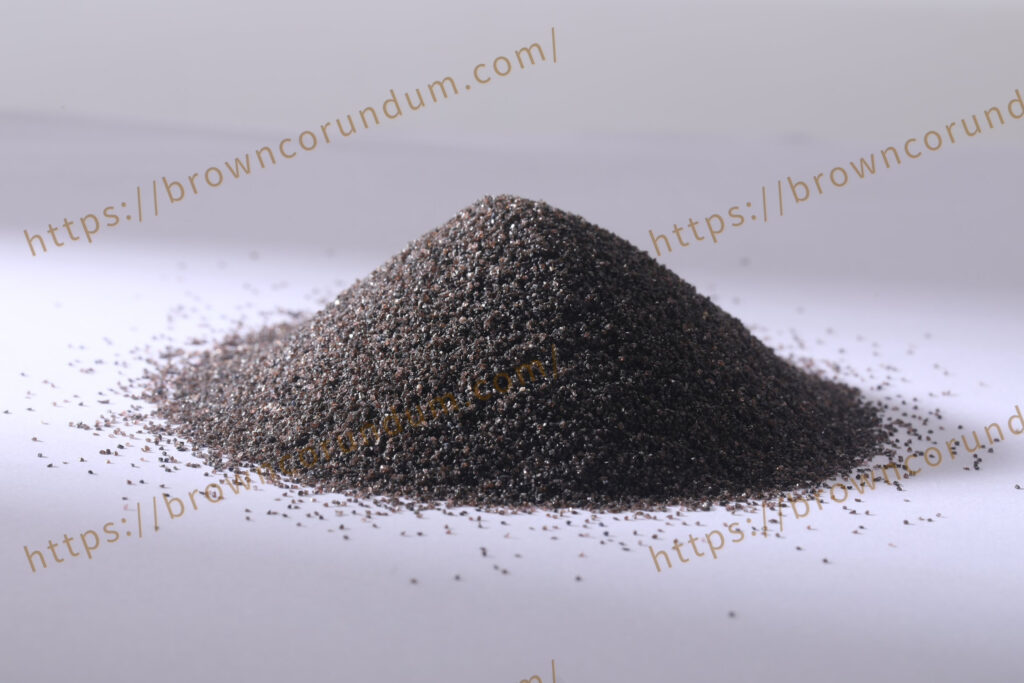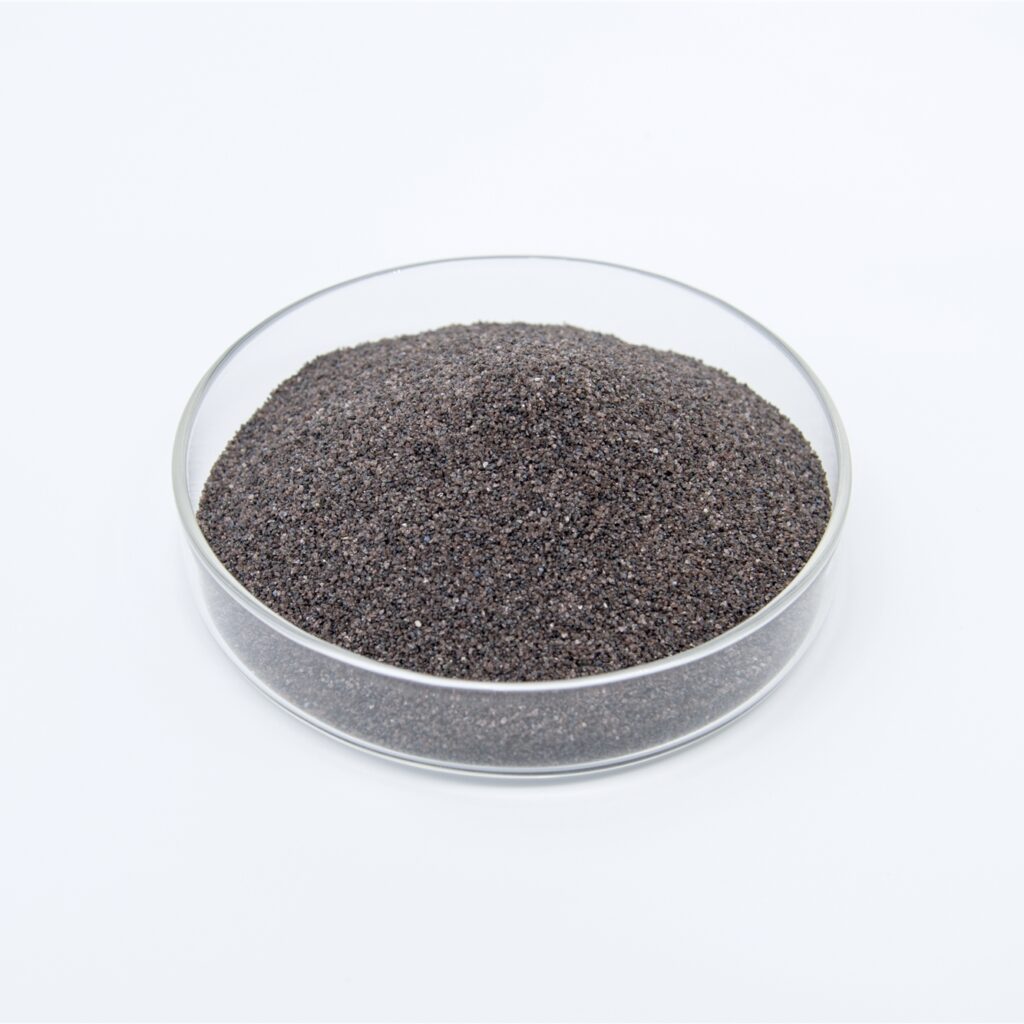Brown aluminum oxide (Al₂O₃) grit is a popular abrasive media for blasting cookware, particularly for surface preparation, cleaning, and finishing. Here’s what you need to know about using it for cookware blasting:
Key Properties of Brown Aluminum Oxide Grit
- Hardness (9 on Mohs scale): Effective for stripping coatings, rust, and old seasoning.
- Sharp & Angular: Provides aggressive cutting action for deep cleaning.
- Reusable: Can be recycled multiple times in blast cabinets.
- Non-Toxic & Chemically Stable: Safe for food-contact surfaces after proper cleaning.
Common Applications for Cookware
- Restoration of Cast Iron & Carbon Steel
- Removes old seasoning, rust, and carbon buildup.
- Creates a uniform surface for re-seasoning.
- Cleaning Stainless Steel & Aluminum Cookware
- Strips burnt-on food, oxidation, and discoloration.
- Prepares surfaces for polishing or recoating.
- Surface Etching for Non-Stick or Ceramic Coatings
- Improves adhesion for new coatings (if applicable).
Recommended Grit Sizes
| Grit Size (Mesh) | Best Use Case |
|---|---|
| 36–60 | Heavy rust/coating removal (aggressive) |
| 80–120 | General cleaning & surface prep (balanced) |
| 150–220 | Fine finishing & smoothing (light blasting) |
Blasting Parameters
- Pressure: 60–100 PSI (adjust based on material thickness).
- Nozzle Type: Tungsten carbide for durability.
- Media Flow: Adjust for consistent coverage.
Safety & Post-Blast Considerations
- Wear PPE: Respirator, gloves, and eye protection.
- Post-Blast Cleaning: Rinse cookware thoroughly to remove residual grit.
- Passivation (for Stainless Steel): Use citric acid or nitric acid to restore corrosion resistance.
- Re-Seasoning (Cast Iron/Carbon Steel): Apply oil and bake to create a new protective layer.
Alternative Abrasives
- Glass Beads: Less aggressive, good for polishing.
- Walnut Shells: Eco-friendly, gentle on soft metals.
- White Aluminum Oxide: Purer, sharper, but more expensive


